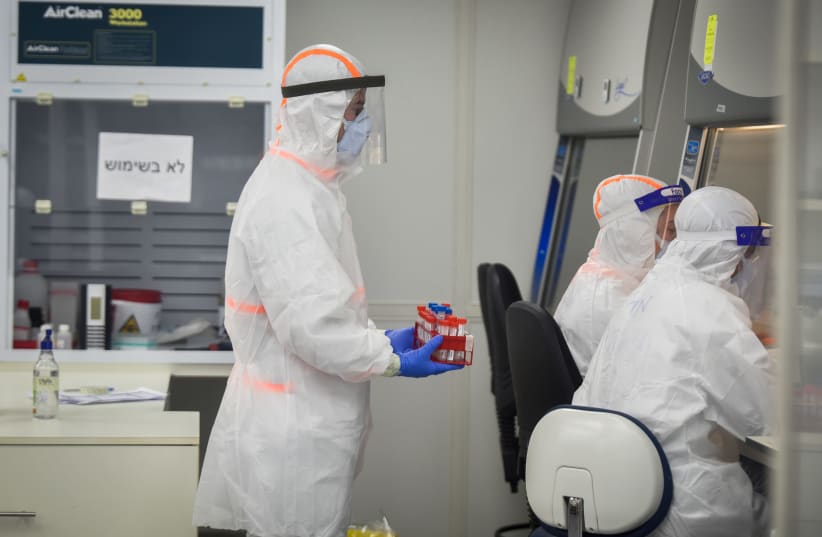As coronavirus cases in Israel have topped 50,000 and the death toll has risen to more than 415, the country still does not have a point man to manage the multi-dimensional crisis in an organized and systematic way.
It’s been weeks since the government began discussing having such a so-called “Corona Czar” who would head a national emergency headquarters and coordinate all logistics and activity between relevant ministries.
But no decision has yet been made, and Israelis keep dying – 51 in the past week alone.
There are several candidates for this position, ranging from current and former health officials to active or retired military officers. This pandemic is a war that has already claimed too many lives. Here are some reasons why a military officer should be appointed to the role.
1. They know how to strategize and make decisions under pressure.
Active or retired military officials have enough experience on the battlefield and commanding troops under fire to be able to make the proper, albeit tough, decisions necessary to win wars. While the Health Ministry has the proper equipment and knowledge to win the battle in the hospitals, the Corona Czar has to be able to look at the data and identify trends to allow for breathing room for the doctors and nurses on the front lines. Excelling at strategizing, military officials can help the Health Ministry prepare for future outbreaks, whether they will be in the winter or even a year or two ahead.
2. The IDF has unique logistical capabilities.
A military officer would know how to delegate the significant resources and manpower afforded to the IDF, with thousands of enlisted troops and reservists able to lend a hand to the fight. As demonstrated during the first wave of the pandemic, the various battalions as well as the IDF’s Home Front Command were able to gather and call up troops to run the numerous coronavirus facilities across the country, bring sick patients from their homes to them, work with municipalities to increase understanding of the virus and provide food to those under lockdown or at high-risk. The Home Front Command played a key role in the first wave and is continuing to serve during this second wave.
3. They excel at crisis management.
The IDF is experienced in managing mass emergencies on a national level. If a military official is appointed as Corona Czar, he would be responsible for managing wide-ranging components of the civilian system. Though less experienced in managing the economy, the Home Front Command, which works hand-in-hand with the civilian sector, provides the necessary assistance to civilian bodies like Magen David Adom. Other troops can provide assistance to Israel Police, who would be working to preserve public order.
4. They leave their politics at the door.
Though former military officials may be eyeing future political careers, active-duty officers are still held back from expressing or allowing politics to interfere with their decisions. While in uniform, decisions are made in accordance with the directives of the political echelon after consulting with all parties involved and after situational assessments are held. Health officials who may be eyeing larger portfolios in the future may hedge their decisions on their political careers or may even be held back by superiors like Prime Minister Benjamin Netanyahu, who could view them as potential political threats and undermine their decisions. But military officials are not constrained by politics.
